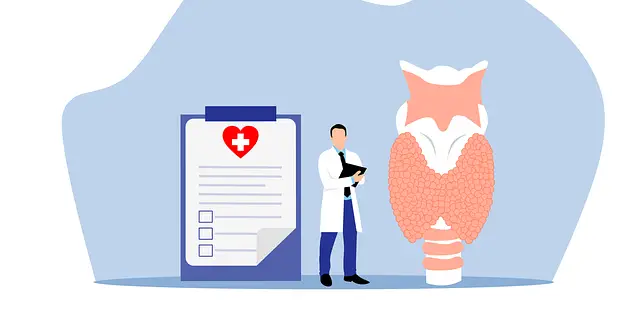Table of Contents
ToggleIntroduction
Women’s health is a topic of utmost importance. As the foundation of our families and communities, women must prioritize their well-being. This blog post aims to shed light on the common health concerns for women, provide insights into holistic approaches to well-being, and offer strategies to overcome barriers to optimal health. By understanding these concerns and equipping ourselves with the right knowledge, we can empower women to lead healthier lives.
Understanding the Importance of Women's Health
Women’s health goes beyond mere physical well-being. It includes a person’s social, emotional, and mental facets. Women must recognize that their health is not a luxury, but a necessity. By prioritizing self-care and seeking preventive healthcare, women can take charge of their well-being, ensuring a better quality of life for themselves and their loved ones.
Promoting Holistic Approaches to Well-being
Taking a holistic approach to well-being means addressing all aspects of health – physical, mental, and emotional. It involves adopting lifestyle choices that promote harmony among these domains. Regular exercise, balanced nutrition, stress management techniques, and quality sleep are key components of a holistic wellness routine. By embracing these practices, women can create a solid foundation for their overall health.
Overcoming Barriers to Optimal Health
In our society, women often face numerous barriers to optimal health. These include gender bias in healthcare, lack of access to healthcare facilities, time constraints, and societal expectations. Addressing these barriers requires collective effort. By advocating for gender equality in healthcare, supporting policies that prioritize women’s health, and breaking down social norms that perpetuate unhealthy behaviors, we can create a conducive environment for women to thrive.
Reproductive Health
Reproductive health plays a pivotal role in a woman’s life. Understanding the female reproductive system, menstrual health, and common disorders associated with it is crucial for maintaining overall well-being. By equipping women with knowledge about their bodies, we can empower them to make informed decisions regarding their reproductive health.
Menstrual Health

A woman’s menstrual cycle is an essential aspect of her existence. It is essential to comprehend the various aspects of menstrual health, including its regularity, duration, flow, and associated symptoms. By monitoring these factors and seeking medical advice for irregularities or abnormal symptoms, women can promptly address any concerns.
Common Menstrual Disorders and Their Causes
Menstrual disorders such as menstrual cramps, heavy bleeding, and irregular cycles can greatly impact a woman’s daily life and well-being. These issues may be caused by hormonal imbalances, anatomical abnormalities, stress, or underlying medical conditions. Seeking medical advice and exploring natural remedies can help alleviate these concerns, improving women’s overall menstrual health.
Coping with PMS: Effective Strategies for Relief
Premenstrual Syndrome (PMS) is a common concern that affects many women. The physical and emotional symptoms associated with PMS can be challenging to cope with. However, by adopting self-care practices such as regular exercise, stress management techniques, and a balanced diet, women can effectively manage PMS symptoms and minimize their impact on daily life.
Navigating Irregular Menstrual Cycles and Potential Concerns
Irregular menstrual cycles can create confusion and anxiety for women. It is essential to understand the various factors that can contribute to irregular cycles, such as stress, hormonal imbalances, and reproductive disorders. By tracking menstrual patterns and seeking medical guidance, women can identify and address any underlying causes, ensuring optimal reproductive health.
Fertility and Pregnancy

Fertility and pregnancy hold immense significance in a woman’s life, both physically and emotionally. Understanding the female reproductive system, common fertility issues, and precautions during pregnancy is vital for women planning to conceive and carry a healthy pregnancy.
Understanding the Female Reproductive System
The female reproductive system is a complex network of organs that work together to facilitate conception and pregnancy. Knowledge about the menstrual cycle, ovulation, and the various stages of reproduction is essential for women wishing to start a family or simply be aware of their bodies.
Infertility: Causes, Diagnosis, and Treatment Options
Infertility is a challenging concern faced by many women. Medical conditions, hormonal imbalances, age, and lifestyle factors can contribute to infertility. Timely diagnosis and appropriate treatment options such as medication, surgery, or assisted reproductive technology can help women overcome infertility and fulfill their dreams of starting a family.
Pregnancy-related Health Issues and Precautions
Pregnancy brings about numerous physical and emotional changes in a woman’s body. It is essential to be aware of common pregnancy-related health issues such as gestational diabetes, high blood pressure, and mental health concerns. By seeking prenatal care, adopting healthy lifestyle choices, and staying informed about potential risks, women can promote a healthy pregnancy journey.
Hormonal Balance
An essential component of a woman’s general health and well-being is hormonal balance. Understanding the impact of hormonal imbalances and addressing concerns related to hormonal shifts, especially during menopause, can significantly improve a woman’s quality of life.
Menopause and Perimenopause
Menopause marks the end of a woman’s reproductive years and comes with its own set of challenges. By recognizing the signs and symptoms of menopause, women can better navigate this transitional phase. Lifestyle changes, hormonal options, and support from healthcare professionals can help women manage the physical and emotional aspects of menopause.
Recognizing the Signs and Symptoms of Menopause
Hot flashes, night sweats, mood swings, and changes in menstrual patterns are common symptoms experienced during menopause. By identifying these signs and seeking appropriate guidance, women can find relief and support during this transformative phase of life.
Managing the Menopausal Transition: Lifestyle and Hormonal Options
Lifestyle modifications such as regular exercise, a healthy diet, stress management techniques, and quality sleep can significantly alleviate menopausal symptoms. Additionally, hormonal replacement therapy (HRT) may be recommended in certain cases. By working closely with healthcare professionals, women can develop personalized approaches to manage menopause effectively.
Addressing Common Concerns: Osteoporosis, Weight Gain, and Mood Swings
Menopause can increase the risk of osteoporosis, weight gain, and mood swings. These concerns can have a significant impact on a woman’s physical and emotional well-being. By adopting preventive measures, such as calcium intake, strength training exercises, and seeking psychological support, women can proactively address these issues and minimize their impact.
Thyroid Health

The thyroid gland plays a critical role in regulating various bodily functions and significantly affects women’s health. Understanding the function of the thyroid gland, common thyroid disorders, and available treatment strategies is crucial for maintaining optimal thyroid health.
Function of the Thyroid Gland and Its Impact on Women's Health
The hormones that control growth, development, and metabolism are produced by the thyroid gland. When the thyroid gland malfunctions, it can lead to various health concerns, including weight fluctuations, fatigue, and mood disorders. Proactively addressing thyroid health can play a crucial role in a woman’s overall well-being.
Hypothyroidism: Causes, Symptoms, and Treatment Strategies
Insufficient hormone production by the thyroid gland results in hypothyroidism. This condition can lead to weight gain, fatigue, depression, and many other symptoms. Through proper diagnosis, medication management, and lifestyle modifications, women with hypothyroidism can lead fulfilling lives and mitigate the impact of this condition.
Hyperthyroidism: Identifying Symptoms and Approaches to Management
Hyperthyroidism is the opposite of hypothyroidism, where the thyroid gland produces an excess of hormones. This condition can cause weight loss, anxiety, irritability, and irregular menstrual cycles. By seeking medical attention, and exploring options such as medication, radioactive iodine therapy, or surgery, women can effectively manage hyperthyroidism and regain their well-being.
Sexual and Reproductive Disorders
Sexual and reproductive disorders such as Polycystic Ovary Syndrome (PCOS) and Endometriosis can significantly impact a woman’s overall health and well-being. Understanding these conditions, seeking timely medical advice, and adopting lifestyle changes can make a vast difference in managing these concerns.
Polycystic Ovary Syndrome (PCOS)
A common endocrine condition that many women experience is PCOS. It is characterized by hormonal imbalances, cysts in the ovaries, and a wide range of symptoms, including irregular menstrual cycles, weight gain, and infertility. By understanding the causes, seeking early diagnosis, and adopting lifestyle changes, women can effectively manage PCOS and mitigate its impact on fertility and mental well-being.
Understanding PCOS: Causes, Symptoms, and Diagnosis
PCOS is caused by a combination of genetic, hormonal, and lifestyle factors. Recognizing the symptoms of PCOS, such as irregular periods, excessive hair growth, and weight fluctuations, can help women identify this condition and seek timely medical attention. Proper diagnosis through blood tests, ultrasound, and evaluation of symptoms is crucial for managing PCOS effectively.
Managing PCOS: Lifestyle Changes and Medical Interventions
Lifestyle changes, including regular exercise, a balanced diet, stress management, and weight management, form the cornerstone of PCOS management. Additionally, medical interventions such as hormonal therapy, insulin sensitizers, or fertility treatments may be recommended depending on individual needs. By adopting an integrated approach, women can effectively manage PCOS and improve their overall well-being.
The Impact of PCOS on Fertility and Mental Well-being
PCOS can pose challenges in terms of fertility, as it can disrupt ovulation and hormonal balance. It can be emotionally taxing for women who want to be parents. By seeking medical advice and exploring fertility options, women with PCOS can fulfill their dreams of starting a family. Additionally, addressing the mental health aspects of PCOS by seeking support and practicing self-care can significantly improve a woman’s mental well-being.
Endometriosis
Endometriosis is a chronic condition that occurs when the tissue lining the uterus grows outside of it. This condition often leads to severe pelvic pain, heavy periods, and infertility. By understanding the symptoms, seeking proper diagnosis, and exploring treatment options, women with endometriosis can effectively manage their symptoms and improve their quality of life.
Unveiling Endometriosis: Symptoms, Diagnosis, and Misconceptions
Endometriosis is often misdiagnosed or underdiagnosed, leading to delayed treatment and unnecessary suffering. By recognizing the symptoms, such as pelvic pain, painful intercourse, and digestive issues, women can advocate for themselves and seek appropriate medical intervention. Dispelling misconceptions about endometriosis can also contribute to earlier diagnosis and improved management.
Treatment Options for Endometriosis: Medications, Surgery, and Alternative Approaches
Endometriosis can be managed through a range of treatment options, including pain medication, hormonal therapy, and surgical interventions. An individualized approach is necessary, taking into account the severity of symptoms, desire for fertility, and other personal factors. Alternative approaches such as acupuncture and dietary modifications may also provide some relief. By working closely with healthcare professionals, women with endometriosis can find a treatment plan that suits their needs best.
Nurturing Emotional Health with Endometriosis: Support and Coping Strategies
A woman’s emotional health may suffer as a result of having endometriosis. Chronic pain, fertility concerns, and impact on daily life can result in anxiety, depression, and feelings of isolation. Seeking support from healthcare professionals, joining support groups, and practicing self-care techniques can help women navigate the emotional challenges associated with endometriosis and build resilience.
Mental and Emotional Well-being

Women’s mental and emotional well-being are integral to leading a fulfilling life. Addressing concerns such as anxiety, depression, body image, and self-esteem is crucial for nurturing women’s overall health and happiness.
Anxiety and Depression
Anxiety and depression are common mental health concerns that affect women disproportionately. Recognizing the signs and symptoms, such as persistent worry, changes in appetite, or feelings of hopelessness, is essential for seeking appropriate help. Therapeutic interventions such as counseling, cognitive-behavioral therapy, and self-care practices can significantly improve women’s mental well-being.
Recognizing the Signs of Anxiety and Depression in Women
Women may experience anxiety and depression differently from men. It is crucial to be aware of the specific symptoms that women may exhibit, such as excessive worry, irritability, or changes in sleep patterns. By recognizing these signs and reaching out for support, women can begin their journey toward healing and improved mental well-being.
Seeking Help: Therapeutic Interventions and Self-care Practices
Therapeutic interventions provide a safe space for women to explore and address their mental health concerns. Counseling, psychotherapy, and group therapy can offer valuable support and guidance. In addition to professional help, self-care practices such as regular exercise, mindfulness, and nurturing social connections play an essential role in promoting mental well-being.
Lifestyle Modifications to Support Mental and Emotional Health
A healthy lifestyle can significantly contribute to positive mental and emotional health. Engaging in regular physical activity, maintaining a balanced diet, getting quality sleep, and nurturing healthy relationships are all vital components of a holistic approach to mental well-being. By making these lifestyle modifications, women can prioritize their mental health and cultivate resilience.
Body Image and Self-esteem
Societal pressure and unrealistic beauty standards often contribute to poor body image and low self-esteem in women. Embracing a healthy body image requires shifting the focus from external appearance to overall well-being and self-acceptance. By fostering a positive relationship with oneself and practicing self-love, women can cultivate a strong sense of self-esteem.
Society's Influence on Women's Body Image and Self-perception
Society’s portrayal of the “ideal” body type can have detrimental effects on women’s self-perception and body image. Recognizing and challenging these unrealistic standards is a crucial step toward cultivating a healthy body image. By celebrating diversity, promoting body positivity, and embracing one’s unique beauty, women can liberate themselves from society’s beauty norms.
Embracing Body Positivity: Cultivating a Healthy Relationship with Yourself
Body positivity involves accepting and respecting one’s body, regardless of shape, size, or appearance. This mindset shift requires self-compassion, practicing gratitude for our bodies’ abilities, and focusing on overall health rather than a number on a scale. By adopting a body-positive mindset, women can foster a healthy relationship with themselves and embrace their bodies as they are.
Help and Counseling for Eating Disorders and Unfavorable Body Image
Women are disproportionately affected by eating disorders, which are significant mental health issues. Seeking professional help, such as therapy and nutrition counseling, is crucial for recovery. Support from loved ones, joining support groups, and implementing self-care practices are vital components of the healing journey. By addressing eating disorders and negative body image, women can regain control of their lives and find peace with their bodies.
Conclusion
In conclusion, prioritizing women’s health is essential for individual well-being and societal progress. This article has explored various aspects, emphasizing the need for holistic care, overcoming barriers, and addressing mental health. By fostering awareness, breaking down societal norms, and advocating for gender equality in healthcare, we can contribute to a world where women thrive physically, mentally, and emotionally. Empowering women with knowledge and support leads to healthier and happier communities.
Frequently asked questions
How often should women seek preventive health check-ups?
Regular preventive health check-ups are recommended for women of all ages, at least once a year or as recommended by healthcare professionals. These check-ups play a vital role in the early detection and prevention of potential health concerns.
What are some natural ways to alleviate menstrual cramps?
Menstrual cramps can be naturally relieved by heat therapy (using a hot water bottle or heating pad), mild exercise (yoga, walking), dietary changes that include anti-inflammatory foods, and herbal remedies (ginger, and chamomile tea).
How can women support their mental well-being during menopause?
Women can support their mental well-being during menopause by practicing self-care activities that promote stress reduction, engaging in regular physical exercise, seeking support from loved ones, joining menopause support groups, and exploring therapeutic interventions such as counseling or cognitive-behavioral therapy.

